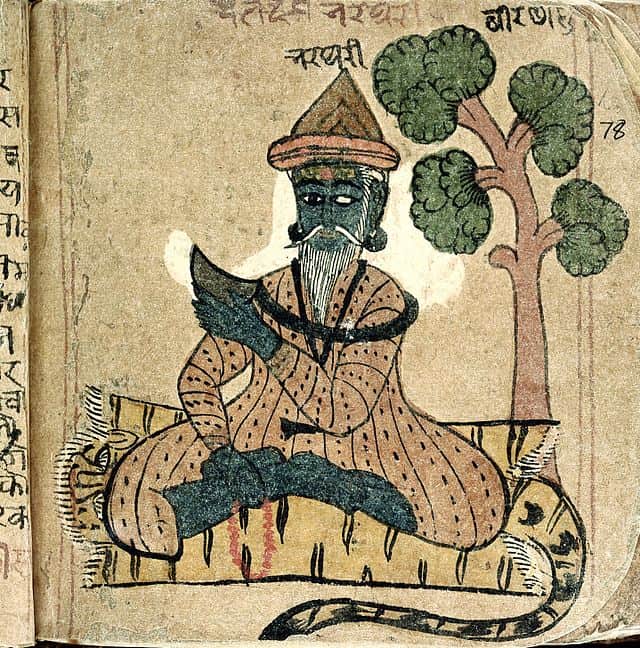
Bhartṛhari
Bhartṛhari ( also romanised as Bhartrihari; fl. c. 5th century CE) is a Sanskrit writer to whom are normally ascribed two influential Sanskrit texts: the Vākyapadīya, on Sanskrit grammar and linguistic philosophy, a foundational text in the Indian grammatical tradition, explaining numerous theories on the word and on the sentence, including theories which came to be known under the name of Sphoṭa; in this work Bhartrhari also discussed logical problems such as the liar paradox and a paradox of unnameability or unsignfiability which has become known as Bhartrhari’s paradox, and the Śatakatraya, a work of Sanskrit poetry, comprising three collections of about 100 stanzas each; it may or may not be by the same author who composed the two mentioned grammatical works.In the medieval tradition of Indian scholarship, it was assumed that both texts were written by the same person.
Modern philologists were sceptical of this claim, owing to an argument that dated the grammar to a date subsequent to the poetry. Since the 1990s, however, scholars have agreed that both works may indeed have been contemporary, in which case it is plausible that there was only one Bhartrihari who wrote both texts.Both the grammar and the poetic works had an enormous influence in their respective fields.
